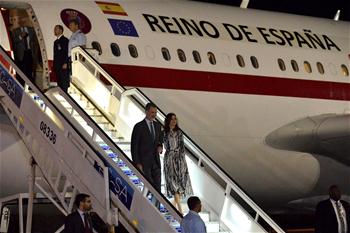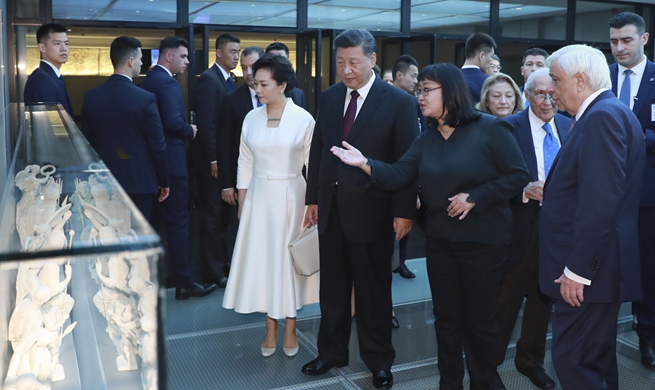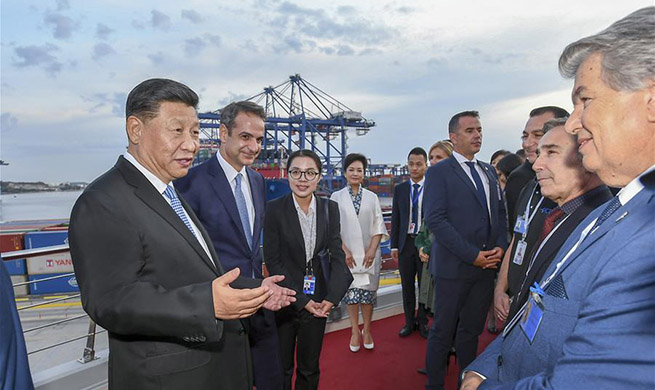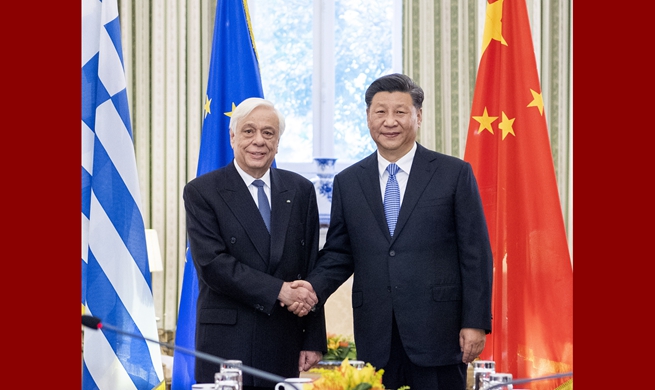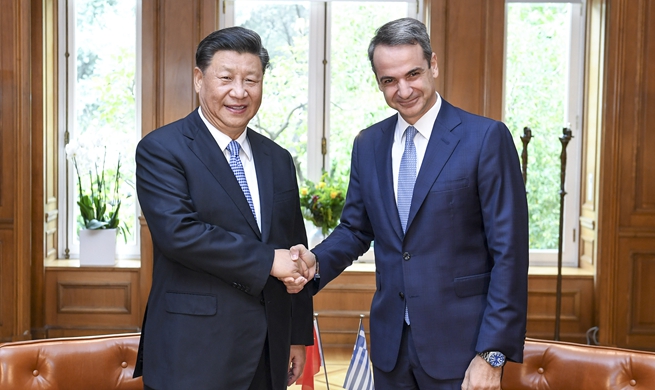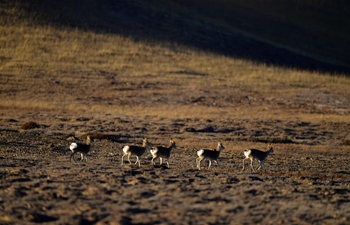VIENNA, Nov. 12 (Xinhua) -- Austria's former Chancellor and People's Party (OVP) leader Sebastian Kurz, 33, said on Monday that he intends to open formal coalition talks with the Green Party following the late September parliamentary elections, in which these two parties made the biggest gains. The Greens' leader, Werner Kogler, approved the move.
Kurz's center-right OVP garnered 37.5 percent of the vote in September's snap elections securing 71 seats in the 183-seat National Council (lower house of parliament), while the Greens won 13.9 percent and 26 seats.
Ninety-two seats are needed for a majority in the National Council.
Kurz's previous government was a coalition with the far-right Freedom Party (FPO), which lost 20 seats and received 16.2 percent of the vote in September. The OVP-FPO coalition that was formed in December 2017 imploded in May this year following a political scandal that involved the FPO's former leader, Heinz-Christian Strache.
Although Kurz's decision to approach the Greens has been widely expected, it raised eyebrows with several politicians and media observers who question the viability of bringing a left-wing party into government for the first time. Such a marked political realignment would be a "challenging process," Kurz himself acknowledged.
"The process won't be easy because the positions of the Greens and the OVP are very, very different," Kurz said.
According to the Viennese daily Der Kurier, the five most contentious topics up for discussion between the OVP and the Greens in the coming weeks are migration, education, the climate, transparency and how to prepare the country for the economic slowdown that is beginning to be felt in Austria and the world.
Migration is a sensitive subject with Austrians after waves of refugees from Syria arrived in Europe in the summer of 2015, which gave Kurz's coalition with the Freedom Party the chance to implement "law and order" policies that still address the fears of many in the country, but are at odds with the more inclusive approach favored by the Greens.
Agreement on these issues between the OVP and the Greens may require a restructuring of cabinet responsibilities, which has been a common practice in Austria over the past decades, particularly during the "grand coalitions" between the OVP and Social Democratic Party after the 1990s.
The coalition talks are widely expected to be long and difficult. Kurz's quest for a "new government" for Austria rests on his declared interest in securing a "stable and reliable" coalition partner. The Greens, who are intent on seeing their policies have a long-term, positive impact on the country, agree that any agreement would "necessitate many compromises." In light of their strong showing in the September elections -- which Kogler has described as "the greatest comeback since Lazarus" -- the Greens appear willing to take on the challenge.


